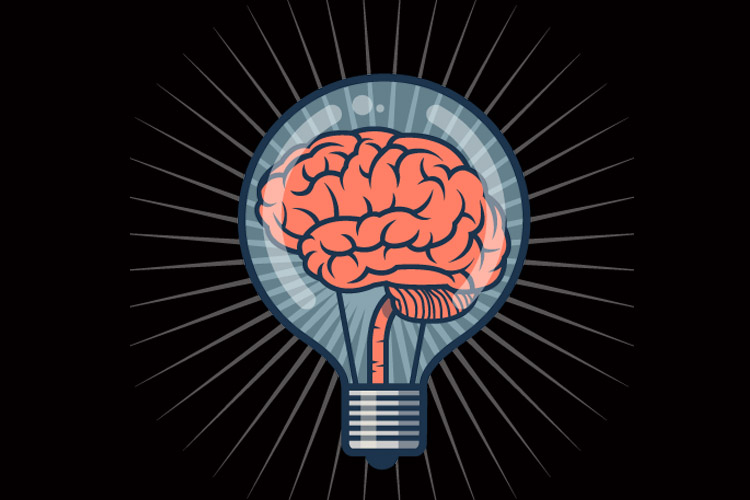Some scientific suggestions will increase the willpower
The willpower response is a reaction to an internal conflict. You want to do one thing, such as smoke a cigarette or supersize your lunch, but know you shouldn’t. Or you know you should do something, like file your taxes or go to the gym, but you’d rather do nothing.

*** How it works in the brain***
The preferential cortex (that section of the brain right behind your forehead) is the part that helps us with things like decision-making and regulating our behavior. Self-control, or willpower, falls under this heading, and thus is taken care of in this part of the brain.
To be effective at controlling our urges and making sound decisions, the preferential cortex needs to be looked after. That means feeding it with good-quality food so it has enough energy to do its job and getting enough sleep.
How resolution gets exhausted for the duration of the day

McGonigal brings up that a standout among-st the most repeated discoveries about resolution is that it is by all accounts limited—that is, we just have so much and it runs out as we utilize it.
Attempting to remain calm, overlook diversions or reject seconds all draw from a similar wellspring of quality.
We can take a gander at determination like a muscle—it can get depleted by abuse, yet simply like our physical muscles, there are a few scientists who trust we may have the capacity to reinforce our self discipline via preparing it.
How to increase your willpower

- Increment your ability for weight: Learn how to oversee push ***********************************************************
- Urge yourself to adhere to your arrangement *******************************************
- Get more rest to enable your cerebrum to oversee vitality better ***********************************************************
- Reflect (for as meager as two months) *************************************
- Better exercise and nourishment: The most disregarded course to higher resolve ****************************************************************************
- Defer things for later to pick up concentrate on what's vital at this point *******************************************************************
To begin with, we have to deal with our feelings of anxiety, says McGonigal. Being under elevated amounts of stress implies that our body's vitality is spent in acting naturally and settling on choices in view of here and now results. Our prefrontal cortex misses out in the fight for our vitality when high-stretch is included.
McGonigal says that ceasing to take a couple of full breaths when we feel overpowered or enticed can be an awesome begin in dealing with our feelings of anxiety and enhancing our self control.
To make it much less demanding, it gives the idea that self-confirmation can even help you to have more restraint when you're running out, as indicated by an examination distributed in the Journal of Personality and Social Psychology. A decent case of this is simply the distinction between telling "I can't" and "I don't." Taking back control of the circumstance utilizing the expression "I don't" has been appeared to be more compelling at helping you to adhere to your arrangement and get out from under unfortunate propensities:
Each time you let yourself know "I can't", you're making a criticism circle that is an indication of your constraints. This wording shows that you're constraining yourself to accomplish something you would prefer not to do.
So have a go at disclosing to yourself that you don't do that negative behavior pattern, instead of rebuffing yourself by saying "I can't."
McGonigal likewise says getting enough rest has a major effect to how effectively our prefrontal cortex functions:
Lack of sleep (even simply getting under six hours every night) is a sort of endless anxiety that weakens how the body and mind utilize vitality. The prefrontal cortex is particularly hard hit and it loses control over the areas of the cerebrum that make longings and the anxiety reaction.
Fortunately, McGonigal likewise refers to considers that have demonstrated we can influence this work to support us by guaranteeing we to get enough rest:
At the point when the restless catch a superior night's rest, their mind examines never again hint at prefrontal cortex debilitation.
What's more, in case you're thinking about how much rest is sufficient, here's a harsh guide: a standout amongst the most acclaimed rest analysts, Daniel Kripke, found in a current report that "individuals who rest between 6.5 hours and 7.5 hours every night, experience the longest, are more joyful and generally gainful".
Reflection has additionally been connected to expanding the hold of determination we have accessible, and additionally enhancing consideration, center, stretch administration and mindfulness. McGonigal proposes this can even give quick outcomes:
What's more, it doesn't take a lifetime of training — mind changes have been seen following two months of brief day by day reflection preparing.
Another awesome approach to prepare the cerebrum, that is frequently not entirely obvious or underestimated, yet can make you significantly stronger to stress, and along these lines support self discipline, is normal physical exercise. Both unwinding, careful exercise like yoga and extraordinary physical preparing can give these advantages, however McGonigal calls attention to that we don't know why this works yet.
As I said before, what you encourage your body influences how much vitality the prefrontal cortex needs to work with. This is the reason sustenance is so imperative:
Something as straightforward as eating a more plant-based, less-handled eating regimen makes vitality more accessible to cerebrum and can enhance each part of determination.
Not exclusively will exercise and great sustenance enhance your self discipline, however they'll improve you feel also. Exercise specifically is known for making us glad by discharging endorphin:
These endorphin have a tendency to limit the inconvenience of activity, obstruct the sentiment torment and are even connected with a sentiment happiness.
Deferring something you truly shouldn't have can be successful in case you're attempting to end an unfortunate propensity. In Willpower: Rediscovering the Greatest Human Strength, Roy F. Barrister clarifies that individuals who let themselves know "not presently, but rather later," are for the most part less tormented by the enticement of something they are attempting to maintain a strategic distance from (his illustration is eating chocolate cake).
Great post!
Downvoting a post can decrease pending rewards and make it less visible. Common reasons:
Submit